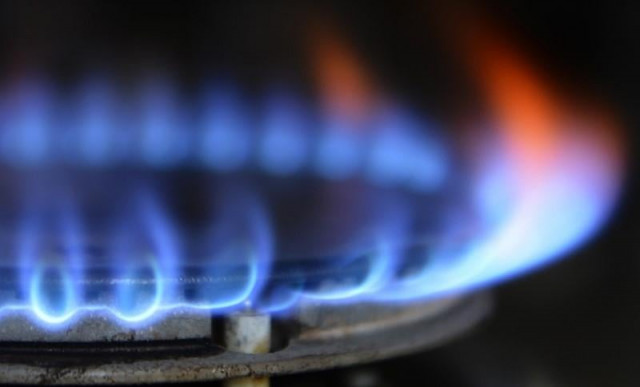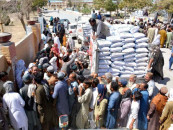SSGC may introduce fixed gas tariff for province
The proposal comes in the wake of rising line losses

A gas cooker. PHOTO: REUTERS
“The company’s line losses [UFG - Unaccounted For Gas] stood at 49.39 per cent in Balochistan, 13.88 per cent in Karachi and 13.80 per cent in interior of Sindh during the year 2017-18,” official sources told APP.
In a bid to bring down the increased UFG ratio, they said, the SSGCL was in the process of finalising a fixed gas tariff regime for Balochistan, the country’s largest province by area.
“The package of fixed monthly billing/slabs enhancement to be suggested for government consideration,” the sources said, elaborating that under the proposal each consumer would pay Rs2,000 per month without fear of increased gas usage in the peak winter season and subsequent billing.
To a question, they cited gas theft culture, tampering with meters, un-authorised extension of load, old leaky network, under capacity transmission lines, and measurement errors as the main reasons behind the mounting UFG.
Demonstration held in Balochistan against low gas pressure
Under the UFG reduction strategy, the sources said the company was establishing Control Gas Theft Operation Departments to deal with pilferers, making physical checking of 100 per cent industrial customers for any theft, illegal load enhancement and malfunctioning of electro volume corrector. Establishment of the independent police station at Karachi and a special court in Sindh and Balochistan to deal with the gas theft cases is also part of the strategy, they added.
The company would complete its survey to examine the entire transmission network, rectify overhead and underground line leakages, and enhance resources for replacement of defective meters within a year.
Besides, they said, the SSGCL was reinforcing existing network with a bigger diameter to optimise system pressures, adding that a test laboratory was being established at a regional level to examine tampered meters and determine actual recovery amount from gas pilferers.
Replying to another question, the sources said in Balochistan, there was no gas curtailment and adequate supply was being provided to customers of all sectors. Sharing the last six-month gas supply data, they said the company provided 78 mmcfd (million cubic feet per day) gas in July, 86 mmcfd in August, 90 mmcfd in September, 114 mmcfd in October, 150 mmcfd in November and 200 mmcfd in December (as of December 21).
Despite severe problems and high consumption in peak winter, the sources said, the SSGCL was managing adequate supplies to Mastung, Kalat, and Ziarat where the temperature was below zero degree.
In line with the international practices, the UFG is calculated with the difference between the metered gas volume injected into the transmission and distribution network - Point of Dispatch (POD) - and the metered gas delivered to the end consumers at Consumer Metre Station (CMS) during a financial year. The UFG, they said, being one of the most critical elements in the gas sector, played a vital role in the profitability of gas transmission and distribution companies.
They said it was important for all stakeholders to understand the term ‘UFG’ and the reasons behind it. The sources said the government and gas utility companies were taking necessary steps to prevent gas losses. They said the government had promulgated the Gas (Theft Control & Recovery) Ordinance, 2016 and involved law enforcement agencies to prevent gas theft.



















COMMENTS
Comments are moderated and generally will be posted if they are on-topic and not abusive.
For more information, please see our Comments FAQ